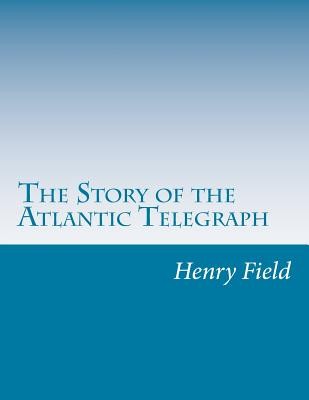
- We will send in 10–14 business days.
- Author: Henry M Field
- Publisher: CreateSpace Independent Publishing Platform
- Year: 2014
- Pages: 148
- ISBN-10: 1500454842
- ISBN-13: 9781500454845
- Format: 21.6 x 28 x 0.8 cm, softcover
- Language: English
- SAVE -10% with code: EXTRA
Reviews
Description
When Columbus sailed from the shores of Spain, it was not in search of a New World, but only to find a nearer path to the East. He sought a western passage to India. He had adopted a traditionary belief that the earth was round; but he did not once dream of another continent than the three which had been the ancient abodes of the human race-Europe, Asia, and Africa. All the rest was the great deep. The Florentine sage Toscanelli, from his knowledge of the world so far as then discovered, had made a chart, on which the eastern coast of Asia was represented as lying opposite to the western coast of both Europe and Africa. Accepting this theory, Columbus reasoned that he could sail direct from Spain to India. No intervening continent existed even in his imagination. Even after he had crossed the Atlantic, and descried the green woods of San Salvador rising out of the western seas, he thought he saw before him one of the islands of the Asiatic coast. Cuba he believed was a part of the mainland of India; Hayti was the Ophir of King Solomon; and when, on a later voyage, he came to the broad mouth of the Orinoco, and saw it pouring its mighty flood into the Atlantic, he rejoiced that he had found the great river Gihon, which had its rise in the garden of Eden! Even to the hour of his death, he remained ignorant of the real extent of his magnificent discovery. It was reserved to later times to lift the curtain fully from the world of waters; to reveal the true magnitude of the globe; and to unite the distant hemispheres by ties such as the great discoverer never knew.
- Author: Henry M Field
- Publisher: CreateSpace Independent Publishing Platform
- Year: 2014
- Pages: 148
- ISBN-10: 1500454842
- ISBN-13: 9781500454845
- Format: 21.6 x 28 x 0.8 cm, softcover
- Language: English English
When Columbus sailed from the shores of Spain, it was not in search of a New World, but only to find a nearer path to the East. He sought a western passage to India. He had adopted a traditionary belief that the earth was round; but he did not once dream of another continent than the three which had been the ancient abodes of the human race-Europe, Asia, and Africa. All the rest was the great deep. The Florentine sage Toscanelli, from his knowledge of the world so far as then discovered, had made a chart, on which the eastern coast of Asia was represented as lying opposite to the western coast of both Europe and Africa. Accepting this theory, Columbus reasoned that he could sail direct from Spain to India. No intervening continent existed even in his imagination. Even after he had crossed the Atlantic, and descried the green woods of San Salvador rising out of the western seas, he thought he saw before him one of the islands of the Asiatic coast. Cuba he believed was a part of the mainland of India; Hayti was the Ophir of King Solomon; and when, on a later voyage, he came to the broad mouth of the Orinoco, and saw it pouring its mighty flood into the Atlantic, he rejoiced that he had found the great river Gihon, which had its rise in the garden of Eden! Even to the hour of his death, he remained ignorant of the real extent of his magnificent discovery. It was reserved to later times to lift the curtain fully from the world of waters; to reveal the true magnitude of the globe; and to unite the distant hemispheres by ties such as the great discoverer never knew.


Reviews